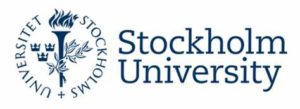Description of the organisation
From Stockholm University, two units are involved in COMFORT: the Stockholm Resilience Centre (SRC) and the Department of Environmental Science and Analytical Chemistry (ACES). SRC is a trans-disciplinary research centre that advances the understanding of complex social-ecological systems, such as tipping points, and generates new and elaborated insights and means for the development of management and governance practices. SRC has its focus on making a difference for sustainable development by building a world-leading research centre that would take the interdisciplinary research on linked ecological and social systems significant steps forward and provide insights and means for the development of management and governance practices in order to secure ecosystem services.
ACES is a multidisciplinary department that gathers scientists from diverse fields in the natural sciences to study environmental phenomena. The department is very productive and publishing >140 high-impact peer- reviewed papers each year. Environment and Climate is a central priority for SU. The climate change, Arctic and its relationship with large-scale carbon cycles is a centrally defined research area at SU. The QS World Univ Ranking 2016 placed SU as 5th in the World in subject area Environ. Sci. and Engineering.
Expertise particularly relevant for the project
SRC and ACES have been involved in many marine-related and climate related EU projects e.g. ELME, KNOWSEAS, Nunataryuk; BONUS projects (ECOSUPPORT, RECOCA, HYPER, INSPIRE, BLUEWEBS);
NorMER (Nordic Centre for Research on Marine Ecosystems and Resources under Climate Change); and finally SWERUS-C3 (Swedish-Russian-US Arctic Ocean Investigation of Climate-Cryosphere-Carbon Interactions). Prof. Örjan Gustafsson (ACES) has been awarded the prestigious ERC Advanced Grant in Environmental and Geosciences.
ACES has long-term experience in climate-related issues such as carbon cycling, permafrost thawing. The group of Örjan Gustafsson focus in particular on abrupt releases of methane (+CO2/N2O) from thawing coastal and subsea permafrost and from collapsing Arctic slope hydrates and their impacts such as ocean acidification.
SRC has long-term experience in system dynamics, the theory of resilience and tipping points, the analysis of abrupt ecosystem change including tipping points using long-term observations and model results. The methodological portfolio of the group includes advanced, non-linear statistical and process modelling approaches. SRC has also long-term experience in synthesising and co-designing research with stakeholders.
For more information visit SU website.
